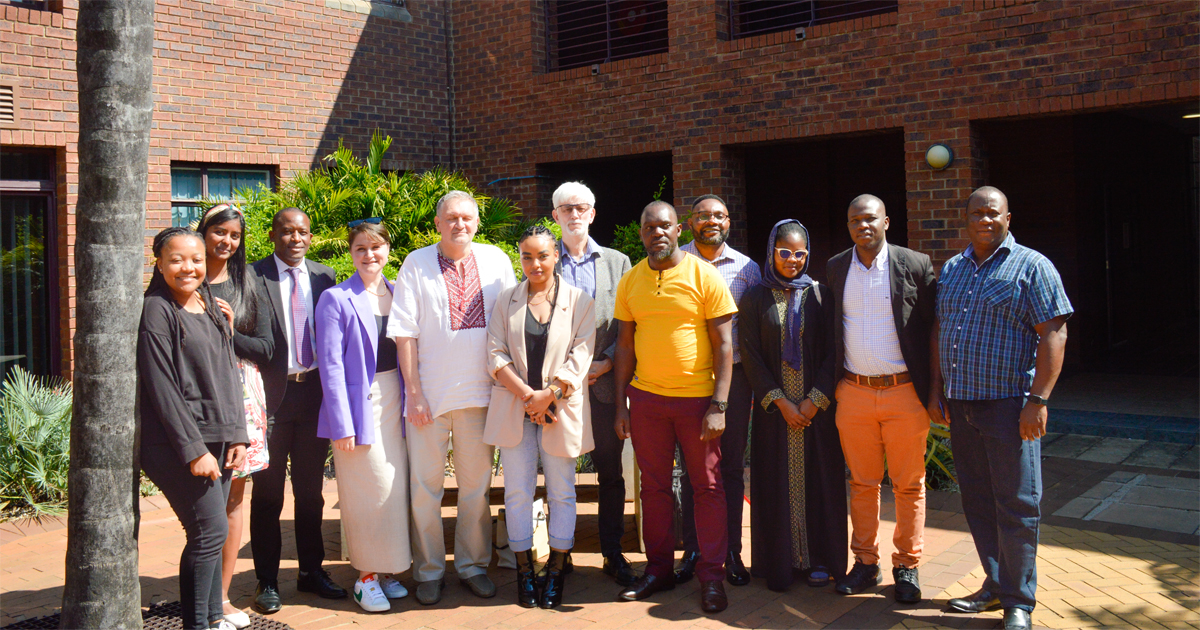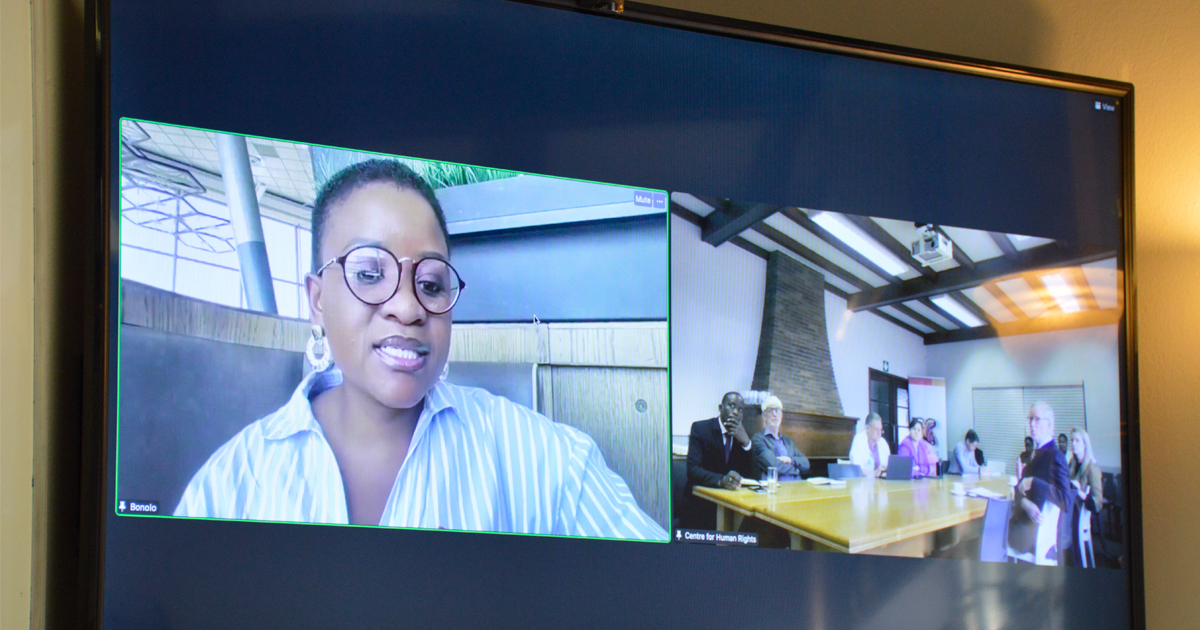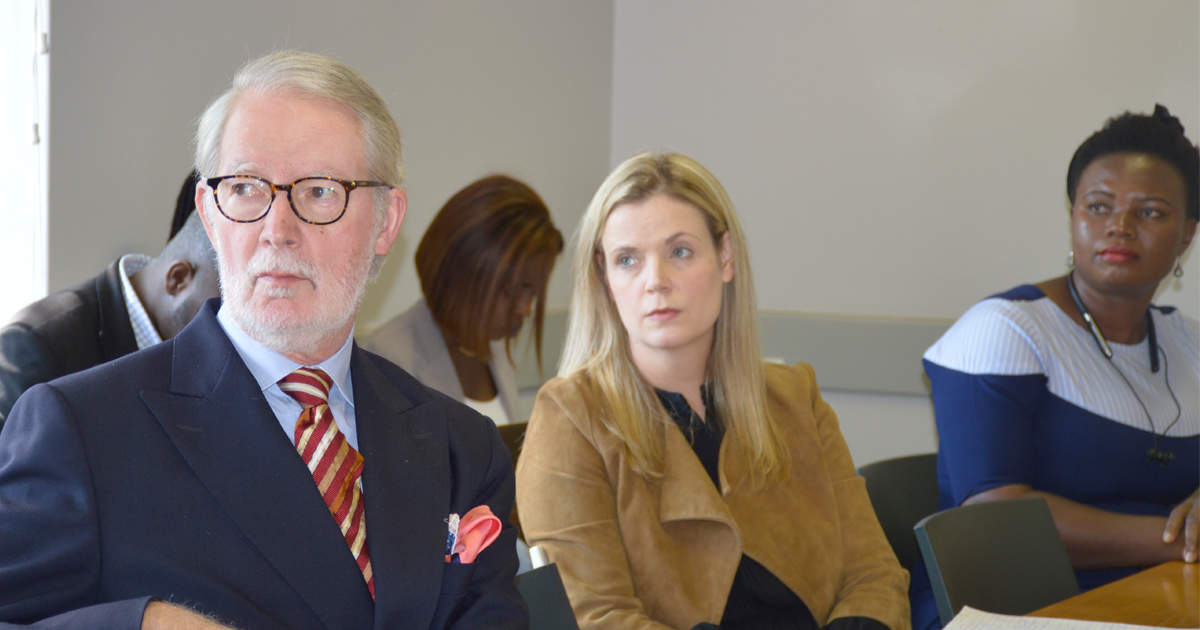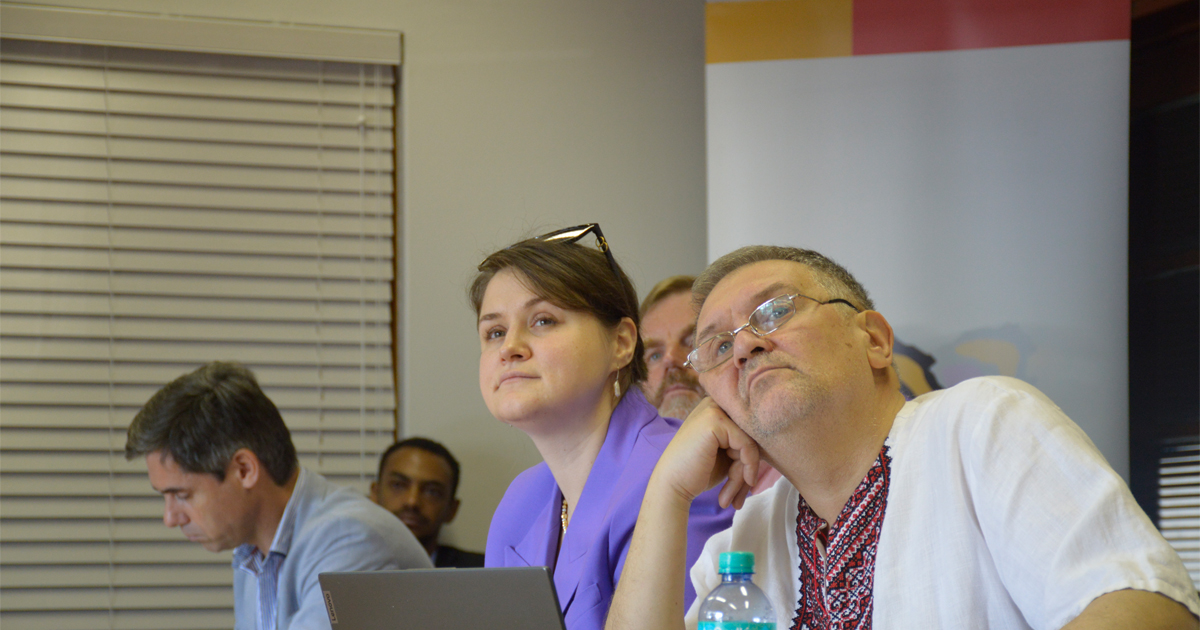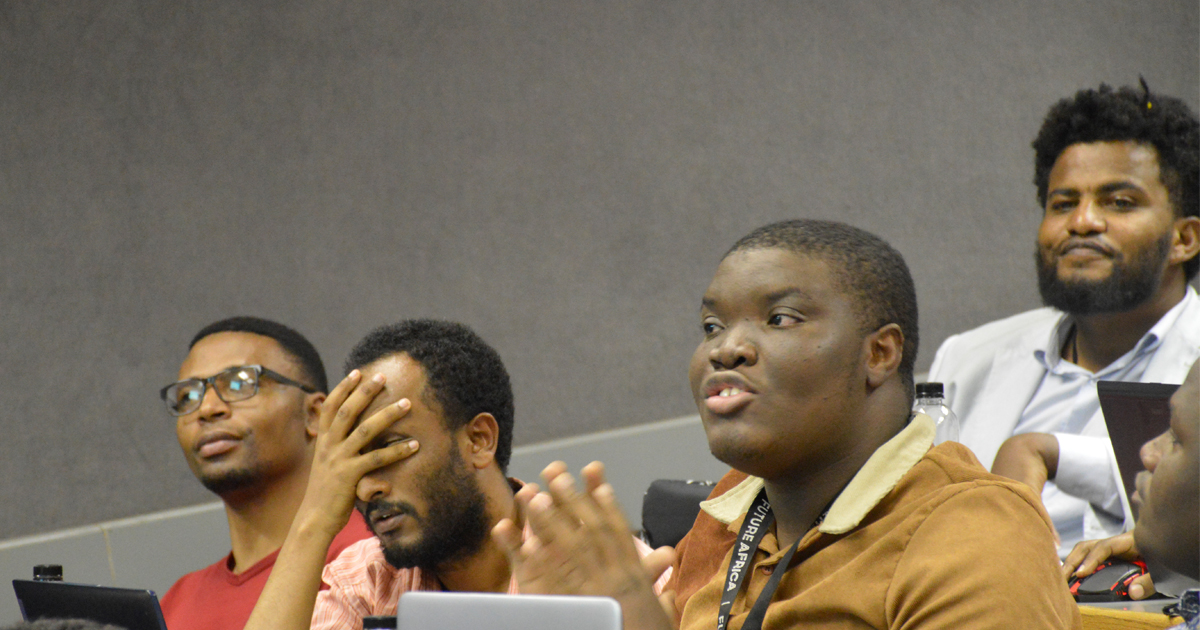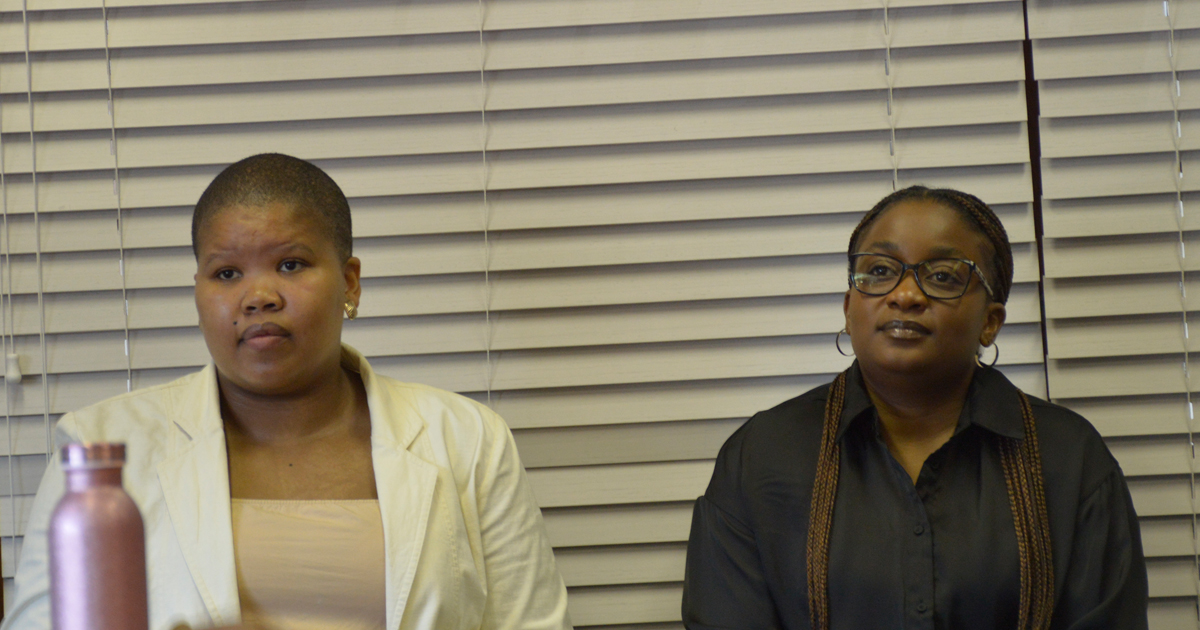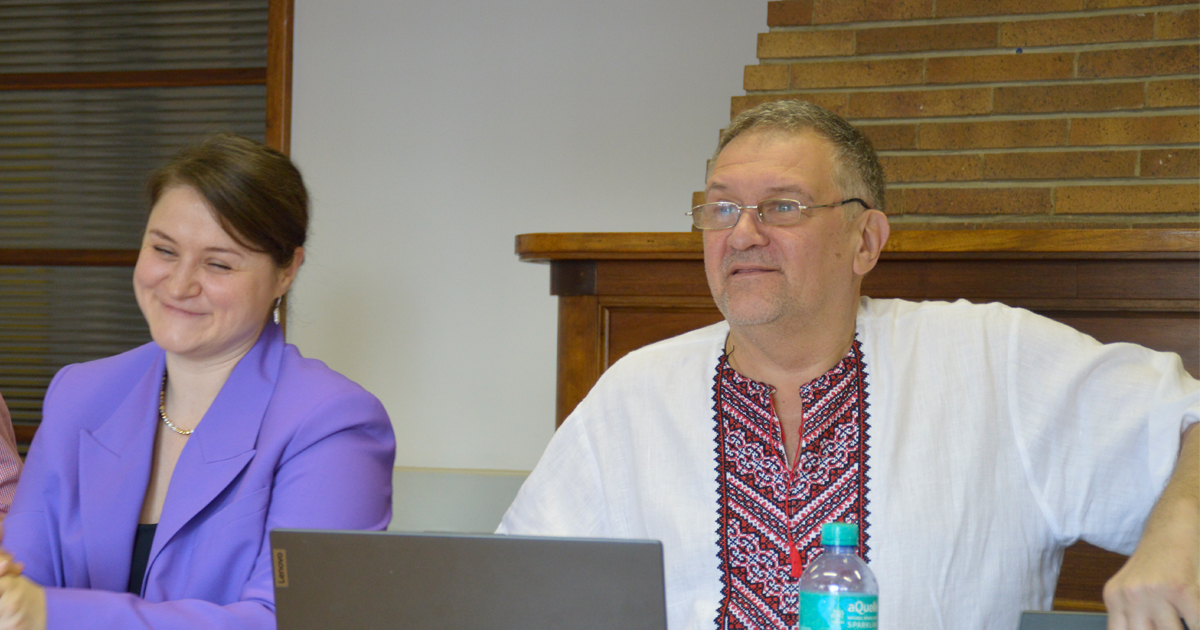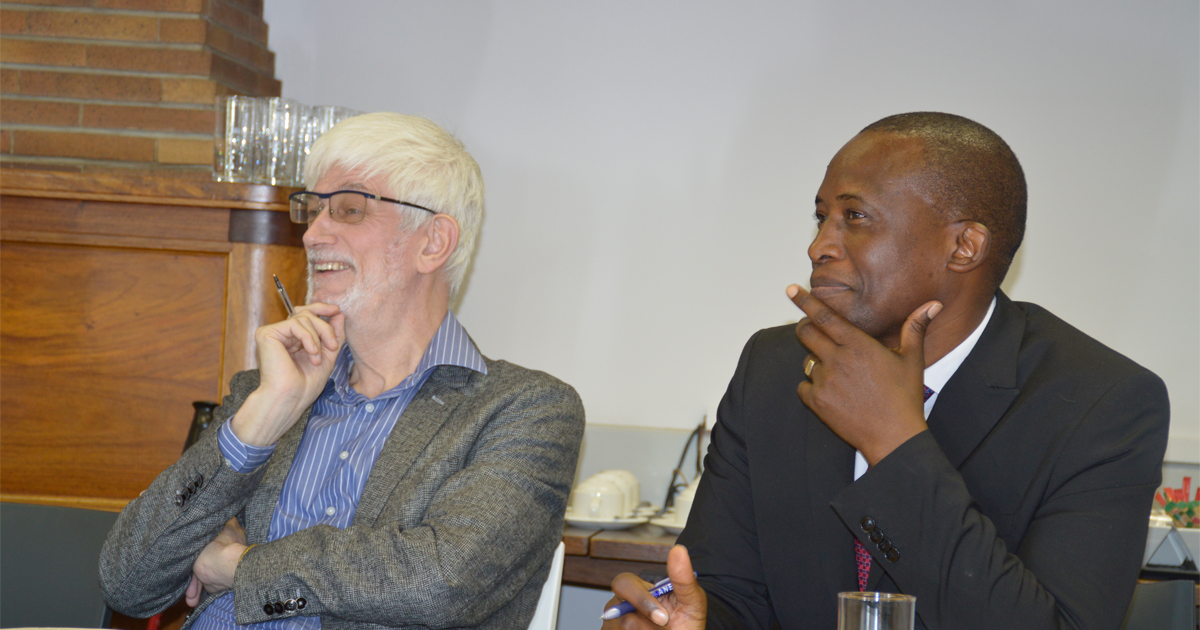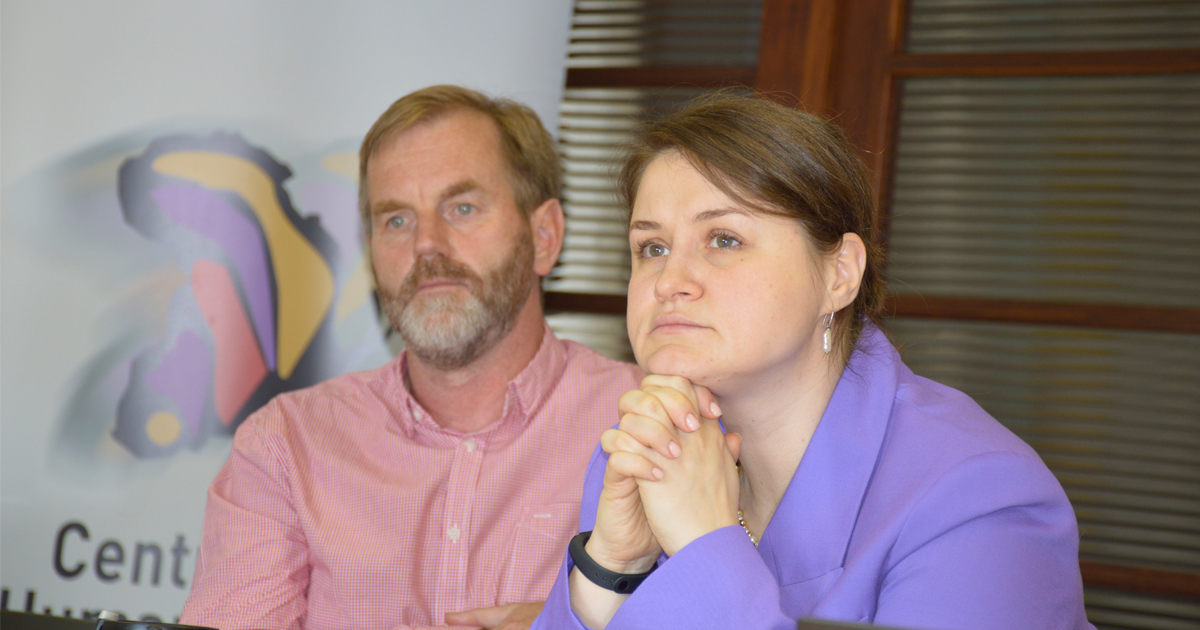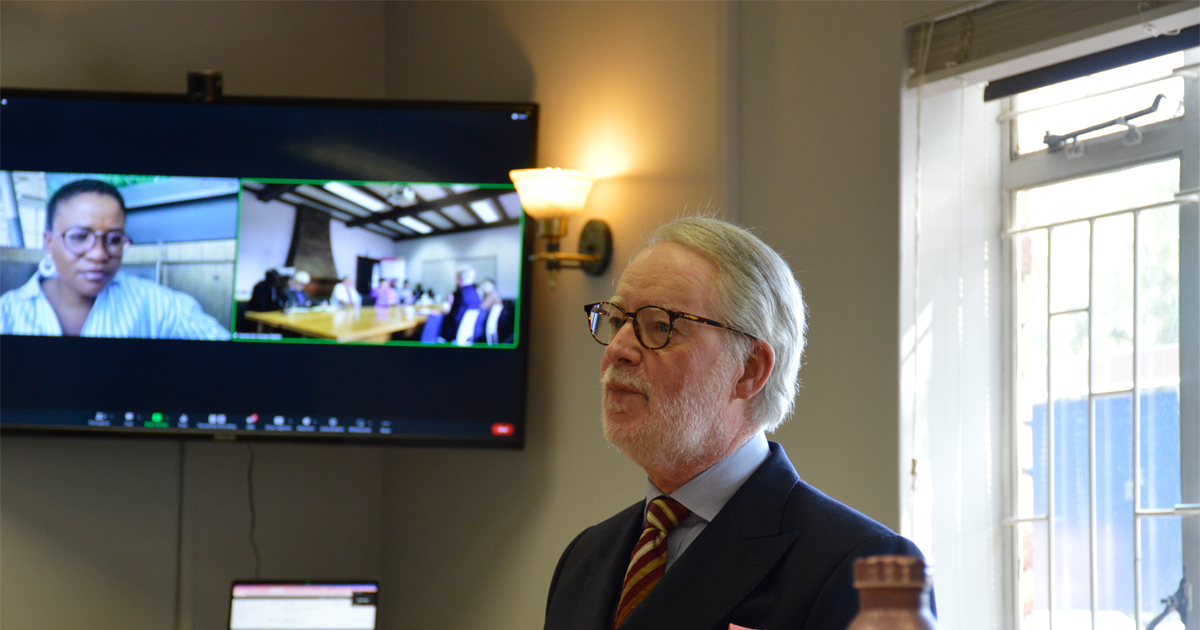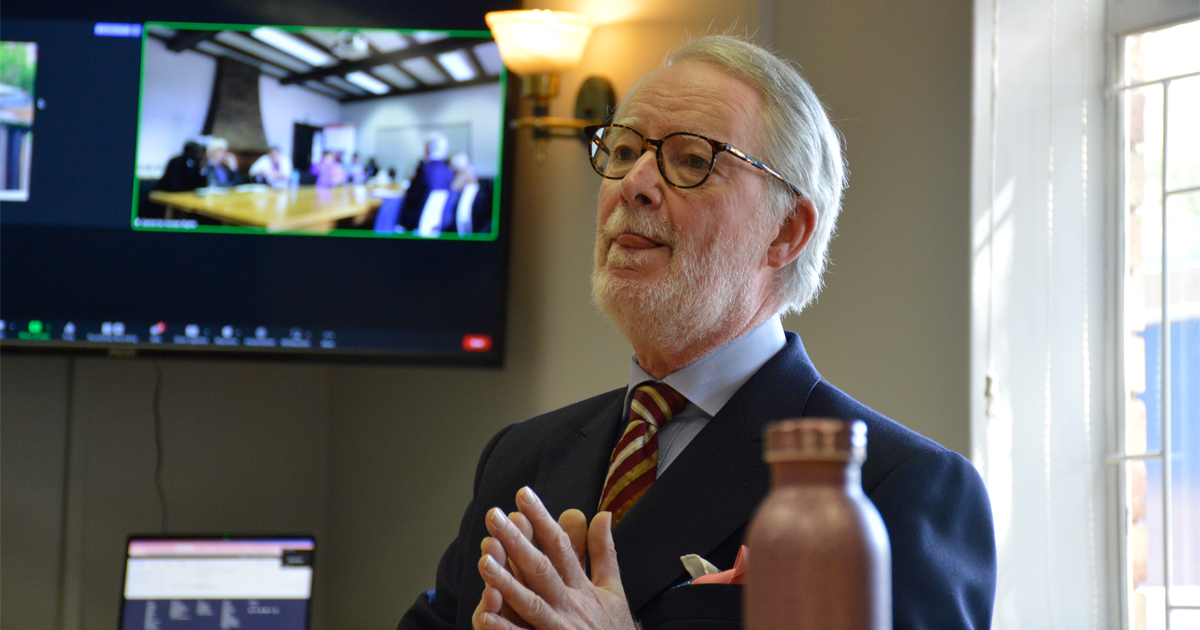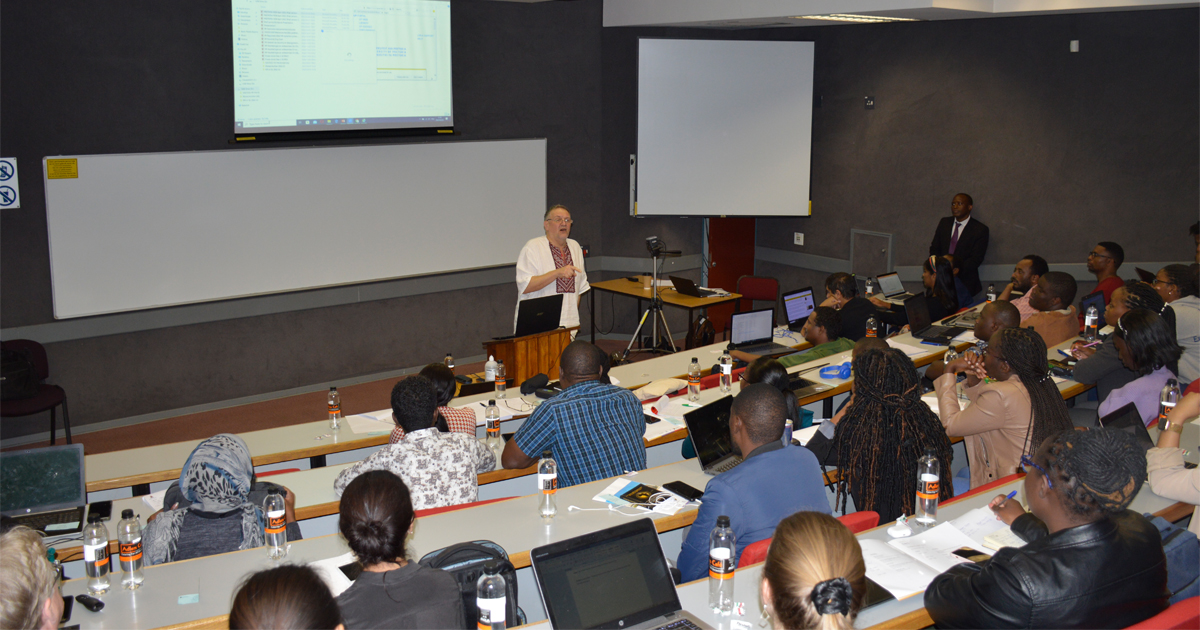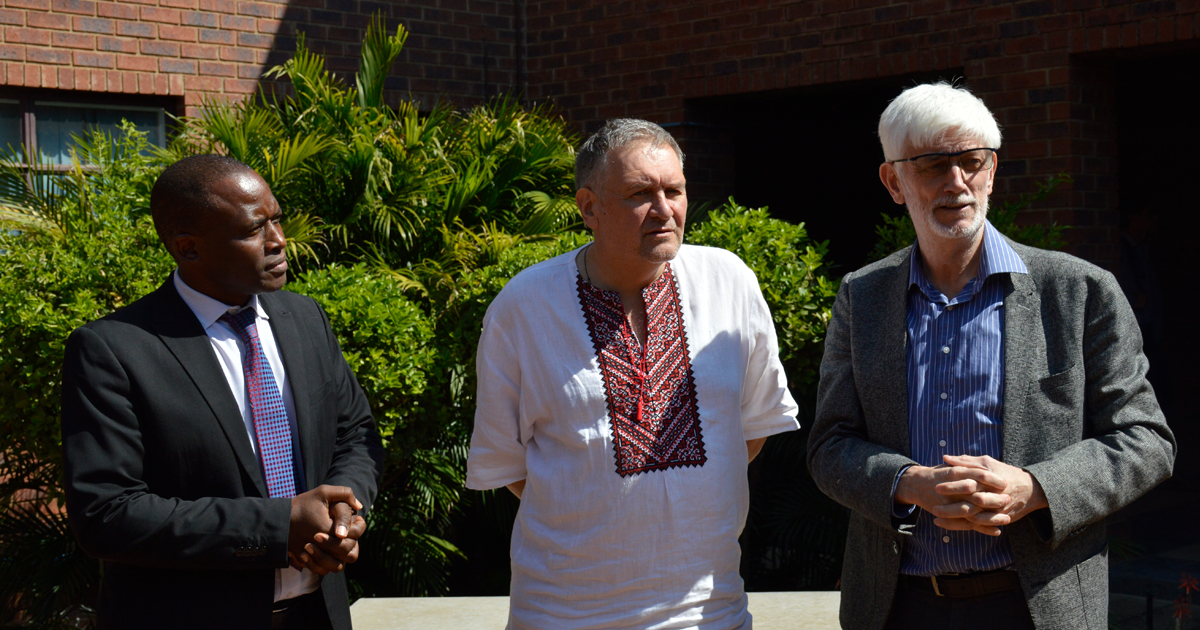On 20 April 2023, the Centre for Human Rights, Faculty of Law, University of Pretoria (CHR), and Public Interest Practice co-hosted a visiting Ukrainian delegation. During the meeting, which took place on the campus of the University of Pretoria, the conversation centred around the Russian invasion into Ukraine and its impact on the population in the country.
The Ukrainian delegation members consisted of Professor Olexiy Haran, Professor of Comparative Politics at the National University of Kyiv-Mohlya Academy and Oleksandra Romantsova, Executive Director at the Centre for Civil Liberties. The Center for Civil Liberties was one of the three Nobel Peace Prize laureates for 2022. The delegation was in conversation with Ambassador Jan Mutton, former Belgian Ambassador to South Africa; Bonolo Makgale, the CHR’s Democracy and Civic Engagement Unit Manager and Dr Mispa Roux, Project Coordinator at the CHR.
The delegation provided an overview of the current situation in Ukraine. Professor Haran highlighted that the Russian invasion is unjustified and a serious violation of sovereignty. The historical background of the causes of the war is complex and extensive - but Russian media propaganda has simplified it to Ukraine ‘belonging’ to Russia and Ukrainians not having a separate identity from Russia. According to Professor Haran, this view poses a threat to Ukrainian identity, culture and independence. Thus, the invasion can be interpreted as imperial and colonial towards the Ukrainian people.
Ms Romantsova highlighted human rights violations occurring as a result of the war from perspective of the Centre for Civil Liberties. The Centre for Civil Liberties collect evidence that may be used to prosecute Russian soldiers committing war crimes and other alleged violations, whether in domestic or international courts. War crimes, including kidnapping and torture of Ukrainians, cyber security infringement, the silencing of media and eradication of Ukrainian culture, continue to escalate daily. Women and children are the most vulnerable groups affected by the war. Furthermore, Russia has targeted members of civil society within Ukraine due to their ability to mobilise the people against his regime and because of their open condemnation towards the Russian government. The Ukrainian delegation highlighted potential areas for collaboration and solidarity through ensuring that dialogues such as this continue in order to provide a clearer picture of the situation in Ukraine and sustainable avenues to offer assistance. The delegation also highlighted expectations and outcomes they would like to see changing the current situation including a concerted and genuine effort by Russia to further the mediation process as well as taking steps that ensure that the ceasefire becomes possible.
Ambassador Mutton provided an analysis and critique on the South African foreign policy stance towards the war. He argued that the situation in the territories temporarily under illegal Russian control is alarming, including the kidnapping or forced disappearance of Ukrainian elected officials, journalists, civil society activists and ordinary citizens. Mr Mutton emphasised that there has to be a change in tone when interacting with government documents. It is concerning that there has been a shift from human rights to positions of neutrality, which suggests that governments have chosen a side (even if they stay ‘neutral’).
Dr Roux spoke on the signs of genocide emerging from the way Russia is carrying out this war. Dr Roux made use of the 10 Stages of Genocide model as a means to measure a potential genocide occurring in Ukraine. One major sign that Russia is committing genocide is that systematic violence is perpetuated against not only male civilians, but against women, children, and older persons. Russia has shown an ‘annihilating mindset’ by attacking civilians who are evacuating and forcing people into ‘filtration’ camps, she says. The treatment of children particularly points to genocide. The ‘forcible transfer’ of children to another group—by having them re-educated or adopted by Russians—violates the Genocide Convention. Over 6,000 children have been put in camps or placed up for adoption in Russia.
Ms Makgale provided a perspective on Africa’s position - specifically South Africa’s position towards the invasion. Since the beginning of the Russia invasion into Ukraine, there has been scrutiny towards African reactions from the West, particularly the US and Europe. Views from the continent vary from country to country, with many states taking a ‘non-aligned’ position. Understanding this stance within a multipolar and highly interdependent world can be complex. African votes in the UN on the war revealed sharp divisions between countries. For example, Djibouti endorsed the UN resolution for Russia to end its offensive, while Algeria, Tanzania and South Africa underscored the importance of diplomacy without condemning Russia’s actions. The high number of abstentions was widely interrupted as a sign of Russian influence or evidence of the growing anti-Westernism of African governments and citizens. However, this view wrongly assumes that Africa is a political monolith. It also suggests an underlying expectation by the West that states the continent should align with them because of the West’s pre-eminence in development and humanitarian aid, and their shared historical past. A question that continues to be raised is whether or not Africa’s tentative stance on the war shows a rejection of key AU principles, such as respect for territorial integrity, the inviolability of borders and peaceful settlement of disputes.
South Africa’s foreign policy stance on the conflict continues to be that of impartiality. Minister of International Relations and Cooperation, Dr Naledi Pandor, stated “South Africa believes the only path to peace is through diplomacy, dialogue and commitment to the principles of the UN Charter, including the principles that all member states shall settle their international disputes by peaceful means.” As mentioned before, there are complex reasons behind Africa taking a non-aligned stance. Why is South Africa neutral? Pretoria and Moscow have long historical ties dating back to the times of apartheid in South Africa. The ANC has long standing relations with Moscow forged during the liberation struggle against apartheid. The Soviet Union backed the liberation movement with arms and money – standing in stark contrast to the West labelling the ANC as a ‘terrorist organisation’. Both South Africa and Russia are members of BRICS. The bloc aims to promote trade and security ties between member countries. South Africa, the most industrialised country in Africa, has been a trade partner with Russia for years. South African exports to Russia were valued at $587m in 2020 while Russian exports to South Africa totalled $506m.
The Ukrainian delegation highlighted potential areas for collaboration and solidarity through ensuring that dialogues such as this continue in order to provide a clearer picture of the situation in Ukraine and sustainable avenues to offer assistance. The delegation also highlighted expectations and outcomes they would like to see changing the current situation including a concerted and genuine effort by Russia to further the mediation process as well as taking steps that ensure that the ceasefire becomes possible. When it comes to the Democratic Agenda, there seems to be this rising trend of treating democracy and development as mutually exclusive ideas. Treating political systems and economic systems in silos opens up the emergence of populist ideals - which directly threaten democracy. The neutral position that many African countries (including South Africa) are taking, prioritises economic relationships over the status of political culture. At the end of the meeting, Frans Viljoen, Director of the CHR, commented: “What is clear is that authoritarianism is on the rise; reliance on ‘strong man’ figures has increasingly made power transfer inherently violent; and vested interests are being protected from popular demands for change. It is evident that Russia has violated international law and the human rights of many ordinary Ukrainians. Democracy remains the best form of governance in which people’s rights are protected, allowing people to have a voice and be heard.”
For more information, please contact:

Tel: +27 (0) 12 420 3228
Fax: +27 (0) 86 580 5743
frans.viljoen@up.ac.za

Tel: +27 (0) 12 420 4199
Fax: +27 (0) 86 580 5743
bonolo.makgale@up.ac.za
